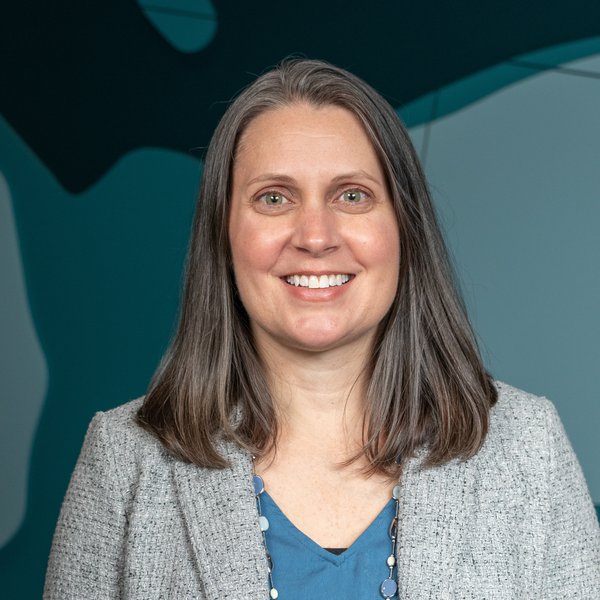Dr. Kathy Mills | Source | Research Scientist at Gulf of Maine Research Institute

Dr. Kathy Mills
Dr. Katherine Mills is a research scientist at the Gulf of Maine Research Institute and leads the Integrated Systems Ecology Lab. Kathy has studied ecosystem change and fish-ecosystem relationships in the Gulf of Maine and Northeast U.S. Shelf regions for over a decade. She uses statistical analysis and modeling to understand (1) how physical and ecosystem conditions are changing; (2) how these changes affect fish populations, biological communities, and marine fisheries; and (3) how fisheries and fishing communities can effectively respond.
Kathy’s research spans a range of topics to investigate how physical changes affect ecological patterns and processes, such as the productivity, distribution, phenology, growth, and size structure of different species. She is also interested in how species-specific changes shape multispecies interactions and community-level dynamics.
Much of Kathy’s research also seeks to understand and inform management of fisheries as coupled social-ecological systems. This research integrates physical, biological, social and economic information to link changes in the ecosystem and management system to societal outcomes. Climate adaptation within marine fisheries is a major focus, with emphasis on assessing climate vulnerabilities, evaluating climate adaptation strategies, and providing information to support adaptation planning by fishery participants, fishing communities and fishery managers.
-
Gulf of Maine Research Institute
Research Scientist
-
Green Plate Special: Atlantic salmon have an upstream battle in Maine
The population is declining and that's likely to continue, but there are other places to find the fish or species that can substitute.
Article -
Gulf of Maine waters spiked to record warm levels in fall 2021
The gulf has seen an onslaught of marine heat waves and is warming faster than 96 percent of the world’s oceans
Article -
2021 was the Gulf of Maine’s warmest year on record, scientists report
Average sea surface temperatures were 4.2 degrees above the long-term averages from before 2012, when ocean 'heat waves' became commonplace, continuing changes in the gulf ecosystem.
Article
-
“That’s the local manifestation of changes in the circulation patterns of the North Atlantic,” said GMRI research scientist Kathy Mills, who helped author the report. “We’re turning up the contribution of the gulf and turning down the Labrador Current, and that’s warming the gulf.”
- Quote in the Press Herald
-
GMRI’s Kathy Mills, a co-author of the warming report, said they’ve continued to see warmer water species like longfin squid and black sea bass intruding into the Gulf of Maine, but it no longer shocks people. “Those changes might have been really eye-catching in 2012 and they are still happening now, but we are perhaps getting more familiar with them,” Mills said.
- Quote in the Press Herald
-
“This year [in the Gulf] was exceptionally warm given how many days we were seeing at heat wave status,” said Kathy Mills, who runs the Integrated Systems Ecology lab at the Gulf of Maine Research Institute. “But I had not thought about the aggregation of this effect into having this year come in with the warmest fall on record … I was very surprised.”
- Quote in The Washington Post



